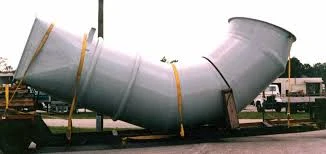
-
 Afrikaans
Afrikaans -
 Albanian
Albanian -
 Amharic
Amharic -
 Arabic
Arabic -
 Armenian
Armenian -
 Azerbaijani
Azerbaijani -
 Basque
Basque -
 Belarusian
Belarusian -
 Bengali
Bengali -
 Bosnian
Bosnian -
 Bulgarian
Bulgarian -
 Catalan
Catalan -
 Cebuano
Cebuano -
 China
China -
 China (Taiwan)
China (Taiwan) -
 Corsican
Corsican -
 Croatian
Croatian -
 Czech
Czech -
 Danish
Danish -
 Dutch
Dutch -
 English
English -
 Esperanto
Esperanto -
 Estonian
Estonian -
 Finnish
Finnish -
 French
French -
 Frisian
Frisian -
 Galician
Galician -
 Georgian
Georgian -
 German
German -
 Greek
Greek -
 Gujarati
Gujarati -
 Haitian Creole
Haitian Creole -
 hausa
hausa -
 hawaiian
hawaiian -
 Hebrew
Hebrew -
 Hindi
Hindi -
 Miao
Miao -
 Hungarian
Hungarian -
 Icelandic
Icelandic -
 igbo
igbo -
 Indonesian
Indonesian -
 irish
irish -
 Italian
Italian -
 Japanese
Japanese -
 Javanese
Javanese -
 Kannada
Kannada -
 kazakh
kazakh -
 Khmer
Khmer -
 Rwandese
Rwandese -
 Korean
Korean -
 Kurdish
Kurdish -
 Kyrgyz
Kyrgyz -
 Lao
Lao -
 Latin
Latin -
 Latvian
Latvian -
 Lithuanian
Lithuanian -
 Luxembourgish
Luxembourgish -
 Macedonian
Macedonian -
 Malgashi
Malgashi -
 Malay
Malay -
 Malayalam
Malayalam -
 Maltese
Maltese -
 Maori
Maori -
 Marathi
Marathi -
 Mongolian
Mongolian -
 Myanmar
Myanmar -
 Nepali
Nepali -
 Norwegian
Norwegian -
 Norwegian
Norwegian -
 Occitan
Occitan -
 Pashto
Pashto -
 Persian
Persian -
 Polish
Polish -
 Portuguese
Portuguese -
 Punjabi
Punjabi -
 Romanian
Romanian -
 Russian
Russian -
 Samoan
Samoan -
 Scottish Gaelic
Scottish Gaelic -
 Serbian
Serbian -
 Sesotho
Sesotho -
 Shona
Shona -
 Sindhi
Sindhi -
 Sinhala
Sinhala -
 Slovak
Slovak -
 Slovenian
Slovenian -
 Somali
Somali -
 Spanish
Spanish -
 Sundanese
Sundanese -
 Swahili
Swahili -
 Swedish
Swedish -
 Tagalog
Tagalog -
 Tajik
Tajik -
 Tamil
Tamil -
 Tatar
Tatar -
 Telugu
Telugu -
 Thai
Thai -
 Turkish
Turkish -
 Turkmen
Turkmen -
 Ukrainian
Ukrainian -
 Urdu
Urdu -
 Uighur
Uighur -
 Uzbek
Uzbek -
 Vietnamese
Vietnamese -
 Welsh
Welsh -
 Bantu
Bantu -
 Yiddish
Yiddish -
 Yoruba
Yoruba -
 Zulu
Zulu
Exploring the New Frontiers of RTRP Technology and Its Applications
The Significance of RTRP Pipe in Modern Applications
In today's intricate industrial landscape, the RTRP (Reinforced Thermosetting Resin Pipe) has emerged as a pivotal component in various applications, transcending traditional piping solutions. The unique properties of RTRP pipes, characterized by their enhanced strength, corrosion resistance, and lightweight design, make them a preferred choice across several sectors. This article will delve into the features, benefits, and applications of RTRP pipes, emphasizing their growing importance in contemporary engineering.
.
Another compelling advantage of RTRP pipes is their impressive resistance to corrosion. Unlike metal pipes that are susceptible to rust and degradation over time, RTRP pipes maintain their integrity even in harsh chemical environments. This property makes them a popular choice for transporting corrosive substances, such as chemicals in the chemical processing industry or wastewater in municipal applications. The longevity of these pipes reduces the need for frequent replacements, resulting in cost savings and less downtime for maintenance.
rtrp pipe

Furthermore, RTRP pipes exhibit excellent thermal and electrical insulation properties, making them beneficial in various applications where temperature fluctuations and conductivity are concerns. For instance, in the energy sector, RTRP pipes can be employed in the transportation of hot fluids, where their insulating capabilities can help to maintain the desired temperature without significant heat loss. This is particularly relevant in geothermal applications and the oil and gas industry, where efficient transport is crucial.
The environmental impact of using RTRP pipes is another aspect worth considering. As industries increasingly focus on sustainability and environmentally friendly practices, RTRP pipes offer a solution that minimizes ecological footprints. Their lightweight nature contributes to lower energy consumption during transportation and installation. Additionally, the longevity and durability of these pipes lead to reduced waste and lower overall resource consumption compared to alternative materials.
Moreover, the versatility of RTRP pipes allows them to be customized for a wide range of applications. From infrastructure projects, such as sewage and drainage systems, to specialized uses in telecommunications where they protect sensitive cables, RTRP pipes have the flexibility to meet specific requirements. The ability to mold these pipes into various shapes and sizes without compromising their structural integrity also enhances their applicability across different industries.
In conclusion, the RTRP pipe stands as a testament to the advancements in materials science, offering a multitude of benefits that cater to the demands of modern engineering and environmental sustainability. As industries continue to evolve, embracing innovative solutions becomes imperative. RTRP piping solutions not only fulfill this need but also set a benchmark for future developments in piping technology. Through its unique properties and adaptability, RTRP pipes are poised to play a crucial role in shaping the infrastructure of tomorrow, marking a significant leap forward in engineering capabilities.









